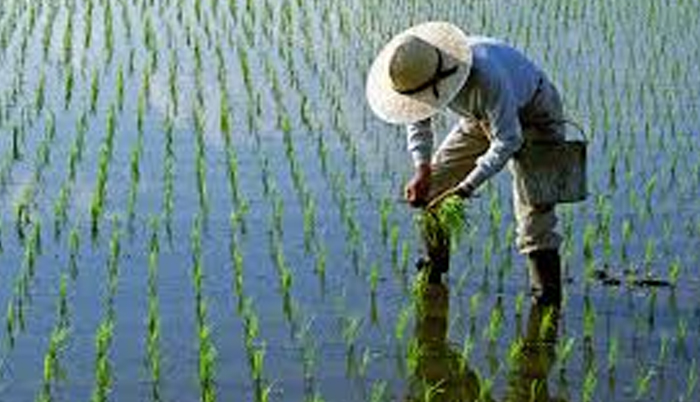![]() Home > Lifestyle
Home > Lifestyle
Researcher Develops “Saltwater Rice” That Could Potentially Feed Up To 200 Million People

![]() April 8th, 2018 | 14:43 PM |
April 8th, 2018 | 14:43 PM | ![]() 779 views
779 views
NATURALNEWS
There is no shortage in demand for rice in China. However, meeting that demand is a different story, especially when it comes to freshwater used to grow that country’s rice crops. After seeing an opportunity the improve China’s rice farming methods, 87-year-old scientist Yuan Longping decided to take it upon himself to develop a way to grow rice using an alternative form of water.
To be more specific, Longping was able to successfully develop a way of growing rice without the use of any freshwater at all. What did he use instead? Saltwater, which is widely abundant in China. As a report on his successful research states, his newly-harvested rice from saltwater could potentially help the world prevent food scarcity. Many different factors have led to all sorts of problems for rice farmers, and an efficient alternative method is always welcome.
It is said that more than half of the world’s population relies on rice to survive. However, the high demand for it is becoming more and more difficult to meet mainly because of freshwater scarcity. This is where Longping’s new method of growing rice with saltwater comes in. Incidentally, China happens to have a lot of it. So instead of just sitting there unused, all of the country’s saltwater locations can be put to good use.
It’s important to understand exactly why saltwater isn’t normally used to grow rice in the first place. Freshwater is more conducive because it allows rice to grow freely, while saltwater impedes the growth process of the crops. Some of the known effects of saltwater on plants, in general, include making respiration more difficult and making photosynthesis virtually impossible. At times, it has also been known to slow the growth of plants until they die.
Longping’s successful research took a lot of effort on his part. He planted 200 different saltwater-tolerant rice strains at China’s Qingdao Saline-Alkali Tolerant Research and Development Center. Based on a Chinese news report, Longping’s efforts yielded a total of more than 8,000 pounds of rice per acre. That’s more than most commercial U.S. growers can harvest annually. In other words, Longping’s experiment was a resounding success.
With that said, Longping wasn’t able to mimic the actual conditions of saltwater in China in his experiment. So while his results were impressive, real-world conditions will be more challenging, and the overall yield will likely be a lot lower unless he changes some key variables.
According to Ren Wang, the Assistant Director-General for Agriculture at the United Nations’ Food and Agriculture Organization, there must be ways to improve on Longping’s research. “It’s still only maybe 10 percent the level of salt in sea water,” said Wang, so his so-called salt-proof rice still has a long way to go before it can be used in farms.
As of this time’s writing, China is known as the biggest rice producer out of all the active rice-producing countries on Earth. Indeed, they already have quite a robust network of rice farms, but their production could be increased even further if non-productive saltwater locations are used to plant rice as well.
One of the benefits of using saltwater to grow rice would be freeing up freshwater lands to be used in growing other types of foods. Much of the country’s lands, which are currently reserved for rice cultivation, could be put to much better use.
In any case, it’s clear that Longping’s method works on some level. It just needs to be polished to work in harsher saltwater conditions that apply to the real world.
Source:
courtesy of NATURALNEWS
by David Williams
If you have any stories or news that you would like to share with the global online community, please feel free to share it with us by contacting us directly at [email protected]